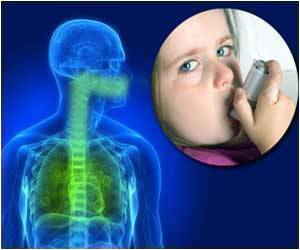Young people exposed to environmental tobacco smoke experience lower odds of wheezing when they maintain a higher quality diet.

‘Follow a Mediterranean diet or eat higher amounts of fruits, vegetables, omega-3 fatty acids, and fiber to lower odds of wheezing.’





Adolescence includes a period of important physiologic changes, including accelerated growth towards peak lung function—a stage in life that may be particularly susceptible to environmental exposures, which may impact development and contribute to chronic respiratory disease in adulthood. Adolescence also represents a critical period for the formation of potentially lifelong patterns in diet, as habits established during this time predict food preferences in adulthood.
This cross-sectional study of a nationally representative sample of adolescents found that youth with substantial exposure to environmental tobacco smoke who consumed a higher quality diet—such as the Mediterranean diet and eating higher amounts of fruits, vegetables, omega-3 fatty acids, and fiber—experienced significantly lower odds of wheezing, compared to adolescents with the same exposure and a poorer quality diet including saturated fats and processed foods.
Why the Research Is Interesting
Targeted public health interventions to improve access to, and consumption of, higher quality foods may represent a potential future strategy to reduce respiratory illnesses linked to exposure of environmental tobacco smoke from cigarettes and cigars. Mount Sinai researchers encourage further population-level, longitudinal studies dedicated to understanding the role of diet in airway disorders among environmentally exposed adolescents.
Advertisement
A higher Healthy Eating Index-2010 score indicates a better compliance with the dietary guidelines recommended by the USDA Food and Nutrition Services for Americans. The adolescents’ exposure to environmental tobacco smoke was measured using serum cotinine, a marker of nicotine intake, considering levels as high (>2.99 ng/ml) or low (≤2.99 ng/ml).
Advertisement
Results of the Study
While there were no significant associations between diet quality and respiratory symptoms, there was a significant interaction between the Healthy Eating Index-2010 score and serum cotinine on wheezing. Among those with high serum cotinine, adolescents with the healthiest diet are less likely to experience wheezing than those with the poorest diet.
In contrast, among adolescents with low serum cotinine, there were no significant differences in any respiratory symptoms between those with the highest, compared to the lowest diet quality. Among the sub-group of heavier secondhand smoke exposure with detailed data about their breathing and lung function, there was a trend towards better lung function with improving diet quality, although this did not achieve statistical significance.
Conclusion
Consuming a higher quality diet was associated with lower wheezing odds in adolescents with substantial exposure to environmental tobacco smoke. While additional longitudinal studies are needed to better understand the role of diet in airways disorders among people exposed to tobacco smoke, researchers encourage consideration of public health interventions to improve diet quality in vulnerable, environmentally-exposed populations.
Mount Sinai’s Department of Population Health Science & Policy and Institute for Translational Epidemiology contributed to this study, in addition to researchers from Ohio State University Wexner Medical Center and the University of Nebraska Medical Center.
Mount Sinai's Dr. Sonali Bose of the research said, "Although cross-sectional in its design, this work highlights the potential benefits of a healthy diet to mitigate the adverse effects of secondhand smoke exposure among adolescents. For those vulnerable adolescents, for whom such passive environmental exposures may be unavoidable, we hope that future research will offer diet-based strategies that empower them to protect their lung health."
Source-Eurekalert















